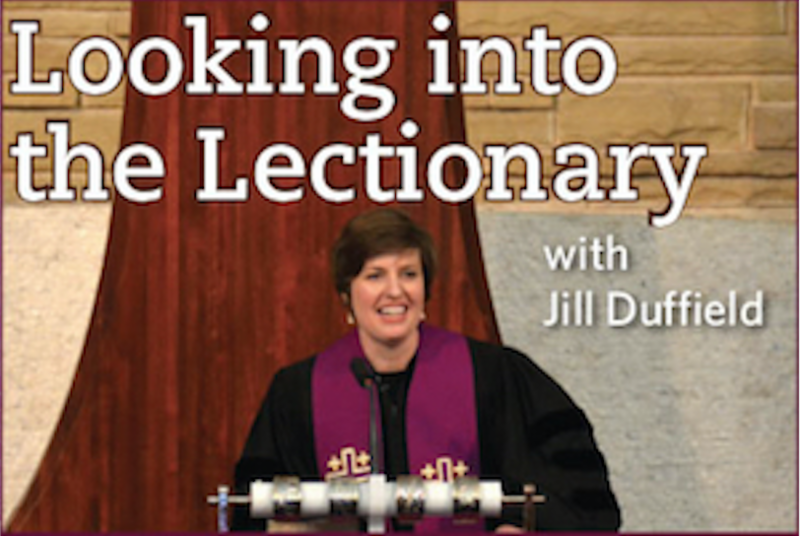We climbed up a hill to a small amphitheater, a place with an extraordinary view obscured at that time by the post-sunset hour. The next day I would make the trek again in order to see what I could not that night. As the guest preacher at this retreat I did not dictate or decide the where and when of my sermons, only the content, so I dutifully agreed to the plan, odd as it seemed. But, alas, there was a complication as I am a manuscript preacher, give or take, so proclaiming the Word of God, outside, in the dark, in an area without artificial lighting posed a serious problem. A small podium provided a place to place my papers and a home base upon which to lean once I literally stumbled upon it. A kind participant volunteered to illuminate my manuscript, not with gold pigment, but with the flashlight of her cell phone.
We settled into the space which felt mysterious with the sounds of people I could see only in shadow. The music felt crisper without the distraction of sight. I felt as if I was speaking to an audience of two, the young woman with the light and the Creator providing the stars and cool mountain breeze, only to be startled when the congregation reacted to something I said. I all but forgot they were there as I got into my proclamation, but they were indeed there and attentive, even though I could only make out the outline of their collective identity. I questioned the wisdom of my hosts, planning a worship service in a place with a glorious view, at a time when seeing the horizon was rendered impossible by the hour. However, as the service continued and the musicians led us in song and the wind picked up and we let the Word of the Lord move around us without self-consciousness due to our light-less anonymity, I started to recognize the wisdom of coming to Jesus at night.
The vulnerability and freedom of being hidden from others' view invited a tenderness, an openness, an acuteness of senses and an awareness of the wind, the Spirit, the sounds and presence of the holy. Being disoriented provided intense focus.
I wonder how Nicodemus found Jesus. How did he know where to go in the middle of the night? Did Nicodemus plan his excursion, or did he go on a whim, unable to sleep, his mind racing, his soul restless and urging him to go find this teacher sent from God? Somehow, some way, he found this rabbi who'd been performing signs, attracting crowds and disturbing the peace of the status quo represented by people like Nicodemus. Free from the watchful gaze of his fellow Pharisees, perplexed by Jesus' claim of the need to be born again, perhaps Nicodemus let his guard down and blurted out a question that revealed his confusion - the religious expert exposed as a spiritual novice. Jesus continues to school the one, who in the daylight taught others, in what is required to see and know God.
You must be born again, surrender to the elements, give up your perceived expertise, your tight control of the divine, your power and all the marks of your worldly status. Then you will truly see the kingdom and know in the depths of your being the love of God for you and all the world. That's the thing about stumbling to Jesus in the dark, your waking skill set doesn't matter anymore; you cannot see your manuscript, that which you planned and crafted, practiced and edited, considered and trusted. The papers may well blow off the podium and if it weren't for that kind stranger willing to hold the light, you would be rendered helpless and forced to go totally off script, at the mercy of your memory or... the Spirit.
Nicodemus - the Pharisee, the leader, the one to whom others looked for wisdom and guidance - in the night, face to face with the near kingdom of God, can only see dimly. He misunderstands the instruction, questions Jesus' unequivocal command about new birth and going where the wind blows and submitting to the water, wrestles with who this rabbi is and what is at stake in seeking him out. His whole worldview is altered.
Sometimes we, too, need to succumb to our midnight stumbling and seek out this teacher with the power to do signs and the compassion to do them for those desperate for relief. When we give into our yearning to know more about Jesus and go to him, furtively like Nicodemus in the night or boldly like Mary at Bethany with the oil, our deepest convictions and certainties get upended. New birth is indeed possible. Resurrection happens. God desires mercy, not sacrifice. Pharisees, leaders, experts and powerful people must become like children if they want to enter, to see, to participate in the very near and present kingdom of God.
Sometimes we need to come to Jesus in the darkness in order to recognize how badly we need the light, to attune ourselves to the presence of the wind and hear the Word without distraction.
Nicodemus hears Jesus' odd mandate about being born from above, about the wind and the spirit and the water, about the Son of Man coming to save the world, not condemn it, and returns to his life as a Pharisee and leader. He is not, however, unchanged by this nighttime encounter. He is the one who speaks up to his own people, the lone voice a few chapters later, who reminds his fellow Pharisees of the right of the accused to speak and defend themselves. He gets called out by his own tribe as a result. Nicodemus will accompany that secret disciple of Jesus, Joseph of Arimathea, in tending to the body of Jesus, bringing the spices for burial, following the law in care of the One who came to fulfill it. Nicodemus' perplexing exchange with this teacher sent from God shapes not only his questions, but his actions. His disorienting encounter is reorienting his life.
While I would have liked to have not only been able to see my sermon, but also the expansive view of the valley that night on that Texas hill, I believe my vision was more acute because it had to adjust to the darkness. I needed the help that came only in the night in order to see the Word of God right in front of me. My inability to scan the landscape forced me to attend to the immediate and that which is invisible, the wind, the voices, the music, the smell of the damp earth beneath my feet, the unexpected touch of another disciple stumbling up the hill beside me, the kingdom of God present all around me. Seeking Jesus in the darkness required relinquishing some control, going off script and letting down my guard, understanding that I am no expert in anything, especially not God. It was then I understood that the Spirit blows where it wills and can be trusted to bring new birth.
This week:
- When have you been forced to let go of control? What did you discover as a result?
- How did you come to know Jesus? How has your understanding of who Jesus is changed over time?
- If someone were to ask you if you are born again, what would you say and why?
- John 3:16-17 are among the most well-known verses in the entire Bible. What do they mean to you?
- How do you interpret John 3:10? Is Jesus scolding Nicodemus? Is it a rhetorical question?
- Look at the other passages in John where Nicodemus appears: John 7:50-51 and John 19:38-39. What do you learn about Nicodemus when you read these additional passages?





No comments:
Post a Comment